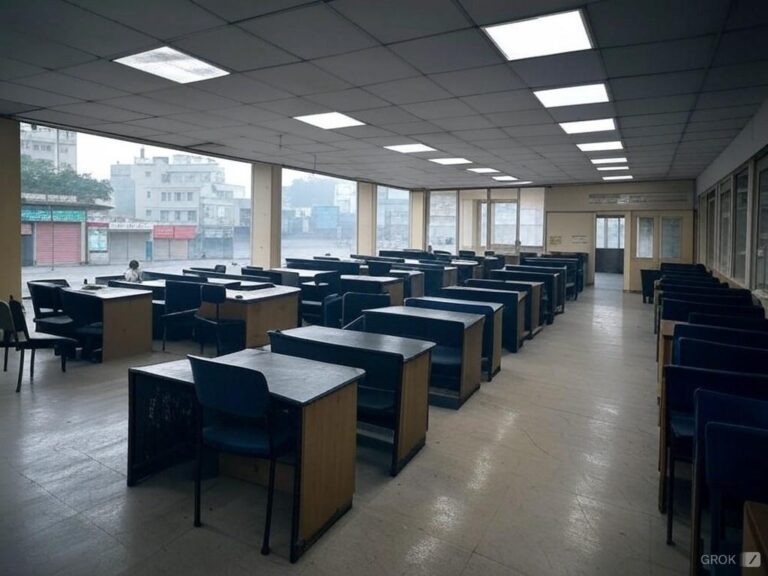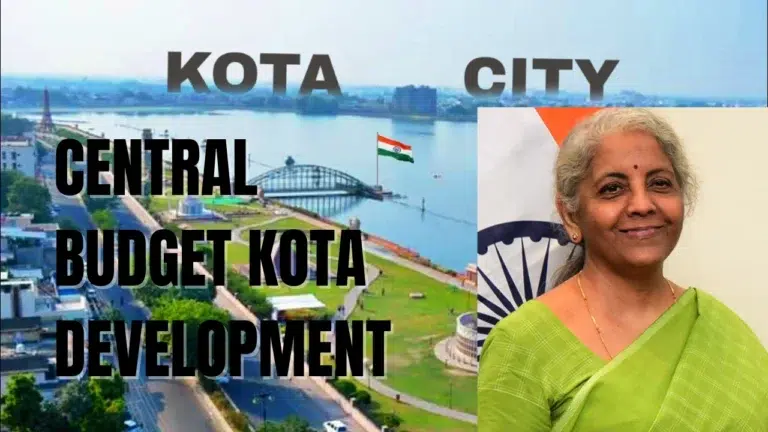Kota, once known as the most important coaching center for engineering and medical entrance exams-applicable to JEE and NEET-have witnessed an unprecedented decline in student intake. Declines in intake at Kota coaching institutes for examination preparation for JEE and NEET are being attributed to issues such as tougher regulations, mental health problems, and increased competition.
The city traditionally used to have around 2 to 2.5 lakh students joining in coaching institutes each year. However, recent data seems to indicate an extreme interference: not more than 85,000 to 1 lakh students come in for admission into courses in the year 2024. A large drop such as this was described in terms of increased competition for institutes, stricter regulatory guidelines, a plethora of suicides by students which put an adverse light on the name of the city, and the expansion of Kota coaching institutes to other cities enabling students to study closer to home.
Now, under the Guidelines for Registration and Regulation of Coaching Centres, 2024, students below 16 years old will no longer be allowed admission this year and directly affect intake numbers. Besides, negative media publicity from student suicides has dissuaded parents not only from sending their children to Kota but also prompted them to consider other learning environments that are far healthier and more invigorating, with less stress. The widening more by top coaching enterprises into towns in India such as Patna, New Delhi, and Lucknow has further diluted the stranglehold that Kota had on preparing for competitive exams, as it further allowed students similar quality education that is now made available within the classroom doors.
Kota Coaching Decline: Economic Ripple Effects
Such a rapid downturn with no signs of recovery has ruined the local economy of Kota. From the very thriving industry of Kota coaching, which used to contribute about Rs 6,500 and 7,000 crores annually to the economy, the revenue has dropped to about Rs 3,500 crores at present. This downturn does not only hit the coaching institutes but also spreads across many areas of local commerce extending from students.
The hostel owners, who previously had almost fully occupied rooms, now are facing many unoccupied rooms, some of them reporting a monthly rent going down from Rs 15,000 to Rs 9,000. The direct hit of this downturn has been felt by such ancillary businesses like eating joints, stationery shops, and transport services, who have recorded a very low sale at present.
The influence has been felt on property prices and rental yields which have seen falling trends due to a drop in demand in the real estate market. Several of the small businesses relying on the student economy have either fallen into hard times or are struggling to survive, leaving a number of employees jobless and an overall slowdown of the economy in the city. The circumstances set the stage for a debate among stakeholders on the need for reconstruction of the economy in Kota, with some looking to set up IT hubs as the new growth version.
The Future of Education in Kota
Although today there is a market slump for Kota, things may be starting to look up. The stakeholders are fairly sanguine, relying on the trustworthiness of the educational model which Kota has nurtured over decades. Coaching centers in Kota have taken the first steps in adapting by integrating online courses in a bid to retain their student base across digital platforms. However, the change is also facing a whole new set of challenges with stiff competition from entrenched edtech players like Byju’s and Unacademy, both of which have recorded renewed enrollments for their online programs.
At this point, when Kota’s education is going through a revitalization, it needs to reinvent itself to remain relevant with the passing time. Programs like mental health facilities, recreational activities, or the UMMEED initiative by the Ministry of Education for student counseling-all programs are aimed at addressing the psychological burdens borne by students. The city will also be rebranding itself away from coaching alone into a more holistic educational environment that embodies mental well-being and learning opportunities.
-Ultimately, the future will determine whether Kota will regain its reputation as the coaching capital of India or instead have to settle into a different role in India’s educational space. Kota call-indicating current decline signals a big change in emerging educational interests, with convenience, cost, and mental health emerging equally as important to the quality of education. These currently become students’ and parents’ factors in the decision-making process.
The education-mediation context that is changing in and around Kota demands adaptive strategies for both education and local economic development to negotiate through these times of turbulence.




